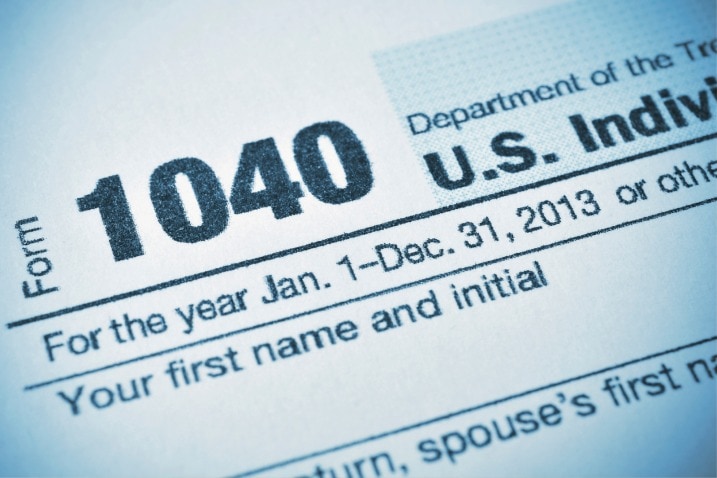It's easy to donate a car or motorcycle to charity if all you want to do is get rid of it. Simply call a charity that accepts old vehicles and the group will gladly accept it. If it doesn't run, towing is usually offered free of charge. But if you want to maximize your tax benefits, it's more complicated. Here's a walk-through of some of the considerations, with the usual proviso that you should discuss these issues with your tax adviser before you act.
Donating a Car to Charity
You Must Follow the Rules to Get That Tax Deduction
You can only deduct a vehicle's fair market value on your tax return under very specific conditions.
You Must Itemize Your Return
If you want to claim a vehicle donation to reduce your federal income taxes, you must itemize deductions. You could itemize even if the donated auto is your only deduction, but that's usually not the best choice.
Here's the math: Suppose you're in the 28 percent tax bracket and the allowable deduction for the vehicle donation is $1,000. That will save you $280 in taxes. If you're in the 15 percent tax bracket and you get that same $1,000 deduction, it will reduce your taxes by $150.
If the vehicle donation is your only deduction, it's likely that taking a standard deduction would save you thousands more dollars in taxes. The only way that donating a car nets you any tax benefit is if you have many deductions and if their total, including the car, exceeds the standard deduction. And remember, you can always donate as much as you want to charities, but the IRS limits how much you can claim on your tax return.
See Edmunds pricing data
Has Your Car's Value Changed?
Used car values are constantly changing. Edmunds lets you track your vehicle's value over time so you can decide when to sell or trade in.

The 2017 Tax Bill and Car Donations
Taxpayers who are considering a car donation might be wondering how the tax bill passed into law in December 2017 could affect their decision. To begin with, the bill, called the Tax Cuts and Jobs Act, lowered tax rates but also altered the previous income brackets. Beginning in 2018 you may find yourself in a new bracket, which might result in either lower or higher taxes, depending on your individual situation. And that means the tax benefit from a donation might be more or less advantageous.
Another important change is that the new law raises the standard deductions from $6,350 to $12,000 for individuals and married couples filing separately; from $9,350 to $18,000 for the head of a household; and from $12,700 to $24,000 for married couples filing jointly. This change likely means that fewer people will find it beneficial to itemize deductions.
"The vast majority of taxpayers are going to take the standard deduction," says David L. Thompson, vice president of public policy for the National Council of Nonprofits. "That means most taxpayers have no incentive to give to charity. That's a serious concern. We fully expect the doubling of the standard deduction to reduce giving by $13 [billion] to $20 billion a year."
With these and other changes resulting from the revised tax laws, it's more important than ever for consumers to consult with their financial adviser or tax preparer before making a decision about donating to charity.
The Charity Must Qualify
Only donations to qualified charities can provide a tax deduction for you. A qualified charity is one that the IRS recognizes as a 501(c)(3) organization. Religious organizations are a special case. They do count as qualified organizations, but they aren't required to file for 501(c)(3) status.
To help you determine whether a charity is qualified, the easiest thing to do is to use the IRS exempt organizations site, or call the IRS toll-free number: 877-829-5500.
A Key Concept: Fair Market Value
The IRS defines fair market value as "the price a willing buyer would pay and a willing seller would accept for the vehicle, when neither party is compelled to buy or sell and both parties have reasonable knowledge of the relevant facts." In this scenario, neither the buyer nor the seller can be an auto dealer. Both must be private parties.
What complicates the matter for taxpayers is that under current IRS rules, you can only deduct a vehicle's fair market value under four very specific conditions:
1. When a charity auctions your vehicle for $500 or less, you can claim either the fair market value or $500, whichever is less.
2. When the charity intends to make "significant intervening use of the vehicle." This means the charity will use it for work purposes.
3. When the charity intends to make a "material improvement" to the vehicle, not just routine maintenance.
4. When the charity gives or sells the vehicle to a needy individual at a price significantly below fair market value.
Determining Fair Market Value
Edmunds can help you determine your vehicle's fair market value with its Appraise Your Car calculator. Enter the car's year, make and model, as well as such information as trim level, mileage and condition. By looking at the private-party value, you'll get an accurate idea of what your vehicle is worth.
Note the caution from IRS Publication 4303: "If you use a vehicle pricing guide to determine fair market value, be sure that the sales price listed is for a vehicle that is the same make, model and year, sold in the same condition, and with the same or substantially similar options or accessories as your vehicle."
Getting Fair Market Value Is Rare
It's not realistic to expect that your vehicle will meet one of the stringent fair market value requirements. Only about 5 percent of donated vehicles are suitable for use by charity recipients. About a third of donated autos are junked, and the rest are auctioned off.
So unless your vehicle is in good or excellent condition, it will most likely be sold at auction or to an auto salvage yard. In that case, your deduction is based on the car's selling price, not your estimate of its fair market value. And note that this price is not necessarily something you'll know when you donate the vehicle or even before the next tax-filing time, since an organization has up to three years to sell your car.
Paperwork Is Important
Getting tax benefits for a donated car requires a lot of documentation, whether the car is junked, sold at auction or given to a charity's client. IRS Publication 4303 has all the details. Be sure to keep all the tax receipts and documents. You'll need them at tax time.
If there's a delay in getting paperwork from the charity, your first option, according to IRS Publication 526, is to file Form 4868. That's a request for an automatic six-month extension to submit your return. Your second option is to file the return on time without claiming the deduction for the qualified vehicle. When the charity finally sends your notification, you can file an amended return using form 1040X to claim the deduction. You'll have to attach a copy of the notification to your 1040X.
Another Approach to Car 'Donation'
Rather than having your vehicle towed away to be donated, there is another way you can make a charitable contribution and maximize your tax benefits: You can sell it yourself and donate the proceeds. By doing so, you might be able to generate more cash than if you let the charity sell it.
Parting with your old vehicle could help a car donation charity carry out its mission and also might make room in your garage for a new car. But how you proceed depends on your goal. If you're focused on getting rid of a junker with minimal effort and you'd look at the tax deduction as a nice bonus, then donating your car makes good sense. But if your goal is to maximize your tax deduction, carefully review these steps, consult with your tax adviser and then make an informed decision.


 by
by 
